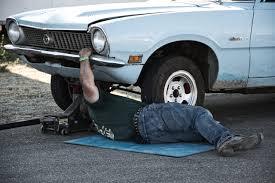In Pakistan’s dynamic automotive market, dealerships play a crucial role in the buying and selling of used cars. They serve as intermediaries between sellers and buyers, providing a range of services that facilitate smooth transactions. Understanding the role of dealerships can help consumers make informed decisions when purchasing a used car. Here’s a comprehensive look at the various aspects of how dealerships contribute to the used car market in Pakistan.
1. Wide Selection of Vehicles
One of the primary advantages of purchasing a used car from a dealership is the variety of options available.
- Diverse Inventory: Dealerships typically maintain a diverse inventory of used cars from various brands, models, and price ranges. This variety allows customers to compare different vehicles in one location, making the shopping experience more convenient.
- Quality Assurance: Many dealerships offer certified pre-owned vehicles that have undergone thorough inspections and come with warranties, providing buyers with added peace of mind.
2. Expert Guidance
Dealerships employ knowledgeable staff who can assist buyers throughout the purchasing process.
- Sales Representatives: Trained sales representatives can provide valuable insights about different models, helping customers make informed decisions based on their preferences and budget.
- Trade-In Assessments: Dealerships often provide trade-in assessments for customers looking to sell their current vehicles, making it easier to upgrade to a new car.
3. Financing Options
Many dealerships offer financing solutions to help customers purchase used cars more easily.
- Loan Facilitation: Dealerships can facilitate loans through partnerships with banks and financial institutions, simplifying the financing process for buyers.
- Flexible Payment Plans: They may offer flexible payment plans, allowing customers to choose financing options that suit their financial situations.
4. Streamlined Purchase Process
Purchasing a used car through a dealership can streamline the buying process significantly.
- Documentation Assistance: Dealerships often handle the paperwork involved in vehicle transactions, including title transfers, registration, and insurance, reducing the burden on the buyer.
- Negotiation Support: Experienced dealership staff can assist with negotiations, helping buyers secure a fair price while managing the seller’s expectations.
5. Post-Sale Services
Dealerships typically provide various after-sales services to enhance the customer experience.
- Maintenance and Repairs: Many dealerships have service centers that offer maintenance and repair services, making it convenient for customers to maintain their vehicles post-purchase.
- Warranty Programs: Some dealerships offer warranties on used cars, covering specific repairs and services for a set period, which can be an attractive feature for buyers.
6. Market Knowledge
Dealerships have a deep understanding of the automotive market, which can benefit both buyers and sellers.
- Pricing Insights: They have access to market data that helps them price vehicles competitively based on demand, condition, and other factors.
- Trends and Preferences: Dealerships are often aware of current trends and consumer preferences, allowing them to stock vehicles that are in demand.
7. Trust and Reliability
Buying from a reputable dealership can offer a level of trust and reliability that private sales may lack.
- Reputation: Established dealerships often have a reputation to uphold, which can incentivize them to provide quality vehicles and good customer service.
- Returns and Exchanges: Some dealerships offer return or exchange policies, providing additional security for buyers if they encounter issues shortly after the purchase.
8. Challenges Faced by Dealerships
Despite their significant role in the used car market, dealerships also face challenges that can impact their operations.
- Competition: The rise of online platforms and private sales has increased competition, making it essential for dealerships to differentiate themselves through service and quality.
- Economic Factors: Economic fluctuations, such as inflation and changes in consumer spending habits, can affect sales and pricing strategies.
- Regulatory Compliance: Dealerships must navigate complex regulations regarding vehicle sales, including emissions standards and safety requirements, which can be challenging.
Conclusion
Dealerships play a vital role in the used car market in Pakistan by providing a diverse range of vehicles, expert guidance, financing options, and post-sale services. Their ability to streamline the purchasing process and offer reliable support can enhance the overall buying experience for consumers. While they face challenges from competition and economic factors, reputable dealerships remain essential players in ensuring a robust and efficient marketplace for used cars. Understanding the role of dealerships can help buyers make informed choices, ultimately leading to a satisfactory purchase experience.


